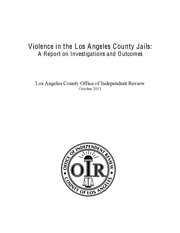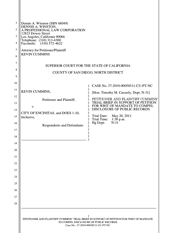California public records
A guide to your rights as a citizen
Keeping an eye on taxes
You are entitled to know how much you are paying in taxes and where that money goes. In general, this information should be easily accessible.
Recent state audits and reports from The Times have found that the city of Bell overcharged taxpayers and demanded questionable fees and fines from business owners. Figuring out whether you are being unfairly taxed can be complex. But here are some basics.
What information is available about the taxes I pay?
You are entitled to know how much you are paying in taxes and where that money goes. In general, this information should be easily accessible.
Property taxes make up the bulk of local tax revenues. If you are a property owner, all property tax charges will be detailed on your tax bill. There are three categories of charges you will find on your bill:
- The general tax levy: This should equal 1% of the net taxable value of your property. Under California law, a property’s assessed value may not increase by more than 2% per year unless the property changes hands or new construction is completed.
- Voted indebtedness: These charges are used to pay off voter-approved debt. Local general obligation bonds must be voter-approved by a two-thirds majority. School bonds may be approved by a 55% majority of voters.
- Direct assessments: These charges are imposed for property-related services — such as those provided by sewer, water or fire districts. Your bill will include phone numbers for all entities to which you pay direct assessments, so you may contact them to inquire about the basis for the assessment and when it was put in place.
Some municipalities also collect special voter-approved local sales and use taxes. Current sales tax rates are listed by the California State Board of Equalization.
Other local taxes may include a utility user’s tax, transient occupancy tax, business license tax, property transfer tax, construction development tax, etc. Local governments should be able to provide information on all taxes they collect.
How do I find out where my local taxes are supposed to go and whether they are being spent as intended?
California law requires voter approval for all new or increased local government taxes (this does not apply to fees, but the passage of Proposition 26 in November reclassified some fees as taxes, meaning they will now require voter approval). The city or district collecting the tax should be able to provide a record showing when any new taxes were approved by voters; election records are also accessible through the county elections division or through your city clerk, if your city conducts its own elections. If you are having trouble getting this information from the city or district, the county auditor-controller’s office is also provided with copies of resolutions by cities and agencies regarding elections that lead to tax rate changes. The Los Angeles County property tax information line is 1-888-807-2111.
Expenditure of public funds is also a matter of public record. There are two types of tax: general taxes that go to pay for general governmental purposes and special taxes designated for a specific purpose (this includes all taxes imposed by special districts). If voters approve bonded indebtedness or a special tax — a bond measure to pay for a new school building or a sales tax increase to go to public safety, for instance — the local taxing body should be able to provide records showing that the funds have been spent for that purpose.
In the city of Bell, an audit by the state controller’s office found, among other things, that the city had raised assessments and taxes without voter approval and spent a portion of the proceeds illegally to increase the salaries of city officials.
You may want to look at the annual independent audits that public agencies in California are required to obtain. These audits should flag instances where the agency could not show that money was collected or spent properly (although in some cases, including in the city of Bell, the audit may not catch or point out all the issues).
Are there any red flags that might show illegal taxation?
Compare your property tax bills and other taxes, like business license taxes, from year to year. If there’s a large increase in your taxes and you don’t recall seeing a tax measure on the ballot, it may be worth checking into.
Share your documents
If you have a public record you would like to share with The Times, attach it to an email to documents@latimes.com or mail it to 202 W. 1st St. Los Angeles, CA 90012, attention City Desk.
Reader-reported documents
About documents.latimes.com
The Times has published thousands of pages of public documents, ranging from Ruben Salazar’s killing to the Bell scandal. Track the Times’ latest at documents.latimes.com.

